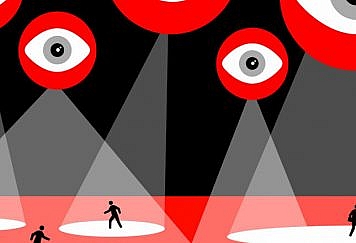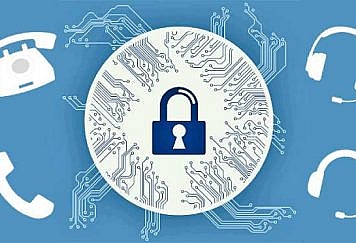With our everyday lives becoming increasingly digital, it’s important to understand cybersecurity and how to protect your personal information online. Though many people wouldn’t leave valuable paperwork lying around for others to see, they often expose themselves to the threat of hackers being able to access their personal information.
Protecting your personal information is an important part of living digitally and taking steps to safeguard yourself from hackers can save you from being vulnerable online. Developing an understanding of cybersecurity and how it can help you protect your personal information can help you become less vulnerable to cyberattacks and more in control of your private information.
Cyberattacks
When learning about cybersecurity, it can be helpful to understand what cyberattacks are and how you can safeguard yourself from them. A cyberattack is typically defined as an attack by a human from a computer on another computer. Cyberattacks usually aim to deny others the ability to access information on a particular computer or, more frighteningly, to access the administrative network of a computer that houses sensitive and private information. Through a cyberattack, a hacker could potentially uncover an individual’s personal information such as a social security number or bank account routing numbers.
A cyberattack can be detrimental to both individuals and organizations such as businesses, universities, or even government agencies. Hackers who perform cyberattacks with malicious intent are typically referred to as black hats, while beneficent hackers are referred to as white hats or grey hats if they utilize blackhat techniques for good reasons. Understanding various forms of cyberattacks can help you recognize when you are at risk of being hacked. Here are some examples of cyberattacks:
- Phishing: Phishing cyberattacks are often done through email and can be dangerous to victims. Black hat hackers will send emails to various individuals with the hopes of gaining personal information that they can use to possibly scam people, blackmail people, or steal their money outright. Another intention that black hat hackers have with phishing emails is to coerce unsuspecting individuals to download malware onto their computers. A particularly effective and dangerous form of phishing is spear phishing. Spear phishing is when a black hat hacker does research on a particular individual in order to make their phishing email seem more credible.
- Cross-site scripting: Cross-site scripting, also known as an XSS attack, is a dangerous form of cyberattack that aims to run scripts on a particular victim’s computer. This is done through third-party websites on which black hat hackers inject malicious JavaScript code. When an unsuspecting victim visits this webpage, information about that particular user becomes accessible to the hacker. In this way, black hat hackers could gain access to an individual’s cookies and eventually gain enough information to take over the victim’s computer. This can be especially dangerous for organizations that have sensitive information on their networks that black hat hackers can exploit for personal gain.
Protecting Yourself from Cyberattacks
Both individuals and organizations have a lot to gain from making sure that they are protected and safeguarded against cyberattacks. By taking the time to make sure that computers and networks are protected, individuals and businesses can rest assured that their sensitive and personal information is safe. Here are some cybersecurity tips to help protect you and your organization from cyberattacks:
- Multi-factor authentication: Multi-factor authentication, or MFA, is an easy way you can add a layer of security to your personal information. MFA is a security process that requires you to provide multiple proofs of identity before being able to access sensitive information. This can help you deter black hat hackers from being able to access sensitive information on you or your organization’s computer networks.
- Maintaining software: Keeping track of software and hardware on computer networks is an important part of keeping your computer network safe from intrusion. Old software should be removed altogether from accessing systems, as black hat hackers can exploit this unused software to gain access to computer networks. Software in continual use should be regularly updated to ensure that they aren’t vulnerable to cyberattacks. By staying on top of software that is allowed access to your computer network, you and your organization can maintain a safe computer network that deters black hat hackers and keeps your sensitive information safe.
Don’t Leave Yourself Vulnerable to Cyberattacks
Cyberattacks are a scary and unfortunately common form of attack in today’s largely digital world. Luckily, having a firm understanding of cybersecurity can help keep you and your organization safe from the malicious intent of black hat hackers.
You May Also Like What Are Some Good Commercial Security Systems?
By taking the time and effort to safeguard your computer networks, you can keep yourself safe from hackers looking to exploit your personal information. Rather than waiting for a cyberattack to be the catalyst for your interest in cybersecurity, be proactive and safeguard yourself before that ever happens. By understanding and implementing cybersecurity protocols, you and your organization can rest assured that your personal information is safe, secure, and free from the prying eyes of black hat hackers.
Follow TechStrange for more Technology, Business, and Digital Marketing News.





